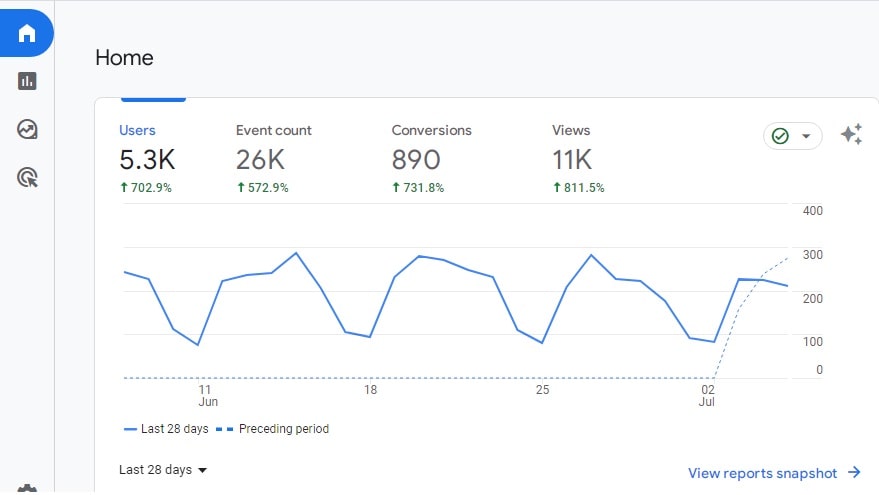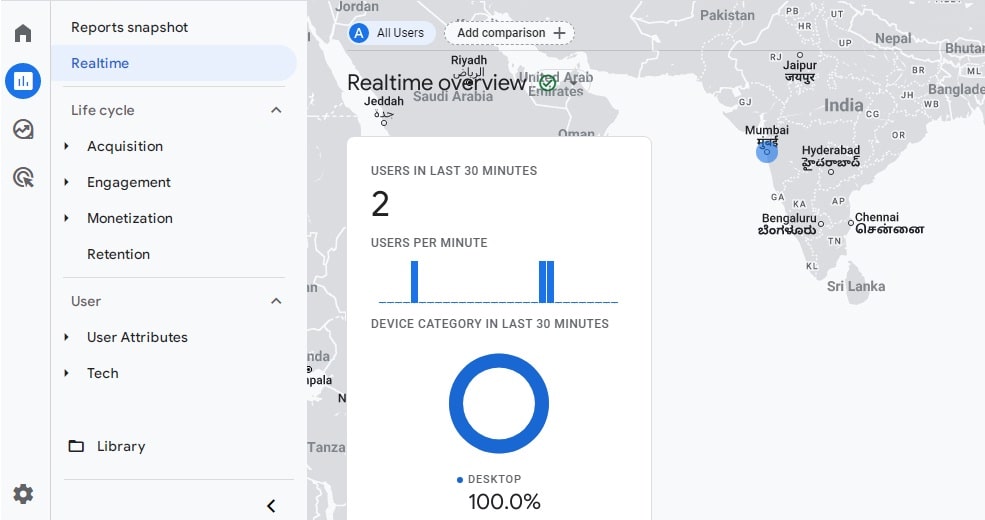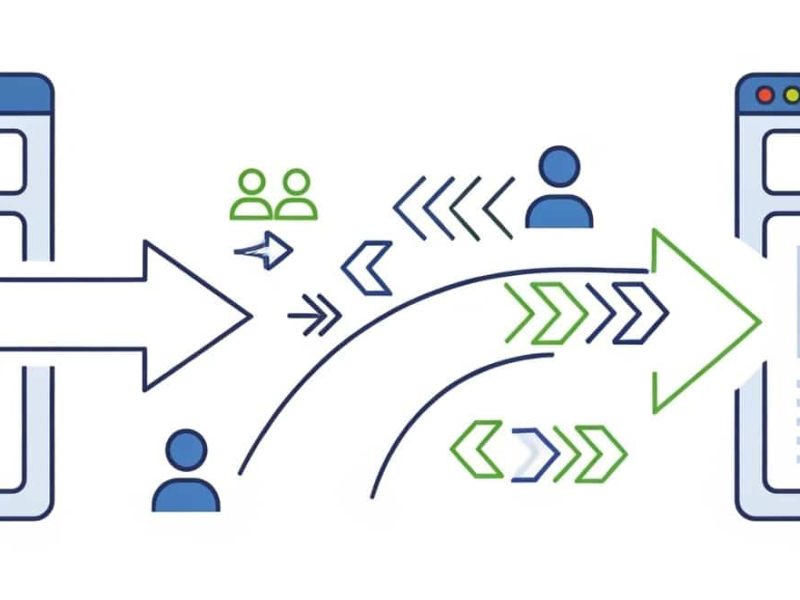Google will end support for Universal Analytics, an application that has been a part of our web analytics for the past ten years, on July 1, 2023. With the release of Google Analytics 4 in 2020, the migration process that started three years prior comes to an end. Even though that name hadn’t yet been coined.
Due to incompatibility between the two versions and the sometimes difficult-to-understand migration process required to transfer from one to the other, the change has shaken the digital ecosystem.
In fact, Google Analytics 4 does not let the import of historical data kept in Universal Analytics, which might be crucial from a strategic standpoint for those who need to conduct comparisons with earlier times. Consider the situation of an online store that needs to compare this year’s Black Friday marketing with past years’ outcomes.
The Google team urged for the past two years that we install the new GA4 in tandem with UA, spanning both measurements, to avoid this issue. As was to be expected, many people waited until the very last minute to complete the integration. Since the darkness, some people haven’t even tried.
We’ll examine Google Analytics 4 and its new features in more detail in this post. Next, we’ll address some frequently asked questions concerning GA4. Let’s get going!

With the rising demand for user privacy, Google Analytics 4 is made to assist organizations in measuring numerous data kinds. Owners of websites and mobile apps can use it to view user journeys across their platforms. Additionally, GA4 uses machine learning technologies to assist you in anticipating fresh discoveries. In the following part, we’ll look more closely at a few of these features.
5 New Features Google Analytics 4
You may more effectively track your goals with Google Analytics 4. These can involve producing more leads, installing more apps, or increasing sales. Let’s examine GA4’s key features now!
1. A New Data Model
A new method of data collection is presented by Google Analytics 4. With a session-based data model, Universal Analytics collects data as hits within these sessions. Both page views and event views are included in this data.
GA4 uses a user-based model, on the other hand, and gathers data in the form of events. Each event is identified by a special name. Additionally, it provides parameters to further characterize the event. These occasions could include things like website views, purchases, interactions with others, and more. Without compromising privacy, you should be able to obtain very detailed metrics.
2. AI-Powered Insights and Predictions
Business owners can more successfully plan their marketing strategies with the aid of Google Analytics 4. This includes brand-new insights enabled by AI that can point out patterns like rising interest in a specific product.
In addition to outcomes, this machine learning system can forecast churn rates, possible conversions, and revenues. These information can be used by marketers to advertise the correct goods to the right audiences.
3. More Complete View
Customer lifecycle-framed reporting is one of Google Analytics 4’s most effective features. Currently, reports are arranged according to the customer journey:

You can track things like how customers arrive at your website (Acquisition), the steps they take while there (Engagement), and whether they stick around after converting (Retention). By doing this, you’ll be able to see how visitors interact with your website across a wider range of devices and channels.
4. Spam Prevention
Those of you who have used Google Analytics for some time might be familiar with spam referrals. Perhaps your website experienced a few brief spikes in traffic or a huge number of visitors from suspicious sources.
This bogus traffic could interfere with your marketing efforts, making it difficult to get reliable data. Google Analytics 4 has fortunately identified a solution to this issue.
Previously, using the Measurement Protocol, spammers could submit phony data to Google Analytics accounts. Data can no longer be sent to a GA4 property without a secret key. It is not accessible to the general public and can be accessed from your GA4 data stream settings.
5. Enhanced User Data Control
Google is phasing out third-party cookies, as you may already be aware. Analytics solutions now place a strong emphasis on first-party data as the digital world transitions to a cookieless future.
Granular data controls are available with Google Analytics 4. These are intended to assist advertisers in adhering to the California Consumer Privacy Act (CCPA), the General Data Protection Regulation (GDPR), and other data restrictions.
For example, a new consent mode aids website owners in securing consent for both analytics and advertising. Additionally, GA4 makes it simpler to manage requests for user data removal.
Do You Need to Upgrade to Google Analytics 4?
Basically, yes. On July 1st, 2023, Universal Analytics will stop processing data. You must upgrade to GA4 in order to continue tracking your performance. Although it isn’t strictly required, you won’t have any data after July 1, 2023.

We advise you to do this as soon as you can. You’ll have plenty of time to adjust to the interface and become acquainted with its robust features in this manner.
Furthermore, GA4 prioritizes user privacy and includes precise controls for data collection and utilization. Additionally, IP addresses are not stored. Therefore, updating to GA4 might assist you in adhering to global data protection laws.
If you already use Universal Analytics, you can upgrade to Google Analytics 4 without having to create a new account. Your current account will continue to collect data until it is replaced by GA4 in 2023.
How to Install Google Analytics 4?
There are various methods for installing GA4. All of them operate in a manner that is comparable to that of Universal Analytics. The simplest method, if you were already using this tool, is to switch the tracking code or identification from one to the other.
The Measurement ID may be found under Admin > Data Streams > Web Stream Details. You can identify it by the letter “G” that comes after a dash and a string of characters, such as G-PSW1MY7HB4. This example’s ID is the online stream identifier for the Google Merchandise Store, a resource that Google makes available for demonstrations and that you can access whenever you are a registered user of the service.
The View Tag Instructions section can be found in this same area, a little lower in the Google Tag section. Here, Google provides instructions on how to add the tracking code to your website using either the Measurement ID you got in the previous step or the full script for a manual installation.
Google Analytics 4 is FUTURE!
Google Analytics 4 will be available on millions of websites throughout the coming years. Not just on the pages where its tracking code is present, but also in countless millions of guides, instructions, courses, and tutorials.
You may be confident that Google Analytics will keep setting the bar and that its product will develop daily. Numerous areas of the present version still need polishing, but weekly updates and modifications increase its potential.
It makes logical to assume that the actions Universal Analytics will conduct in the future will be more significant and firm because the closing of Universal Analytics should result in a reorientation of the numerous resources it used to GA4.
It is already a really helpful tool for those of us who have been using it regularly for a number of months; it is challenging to tame but provides us with a far deeper understanding of our digital assets. We are aware that the learning curve is steep and that it can be challenging to overcome resistance to change, but we are confident that if you give your Google Analytics 4 a little love, you will start seeing results in a few hours.
Conclusion
In July 2023, Google Analytics 4 (GA4) will take the place of Universal Analytics (UA). While putting user privacy first, this updated edition offers stronger functionality for marketers and company owners.
As we’ve seen, GA4 brings insights and predictions driven by AI to help you optimize your marketing initiatives. Additionally, it offers fine-grained control over data collection and consumption, as well as the ability to stop fraudulent traffic.

Javier is Content Specialist and also .NET developer. He writes helpful guides and articles, assist with other marketing and .NET community work



